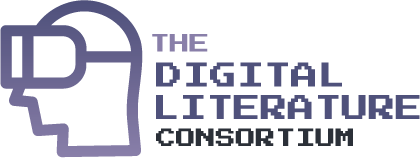Digital literature is slowly but surely making its way into mainstream culture. Works of digital literature come in many flavours: Augmented Reality (AR) applications may show you the lines of a digital poem in the streets during your tram ride through Amsterdam, Twitter bots automatically retweet messages that happen to accidentally comply with the metrical form of a sonnet, Virtual Reality (VR) allows you to almost literally step into a poem or a story, and online poems may consist of a creative combination of words and hyperlinks to YouTube videos.
Works of digital literature hence make use of opportunities that digital technologies offer. They are often even born digital: their digital characteristics form a meaningful component of the work that cannot be taken away without affecting its quality or meaning. As such, e-books usually fall outside the scope of the definition.
Works of digital literature show great potential for secondary education. The use of digital technologies typically resonates well with the current generation of young adults, who may often have grown up in the presence of smartphones, VR headsets, or AR applications (think of Pokémon Go). As such, incorporating digital literature into the secondary school curriculum may spark pupils’ interest in language and literature by presenting them with works of literary art via a medium they are already positively familiar with. Perhaps even more importantly, these works of art may effectively be used in the classroom to question and discuss the omnipresent role of digital technology in our everyday lives.
The existence of digital literature also comes with important opportunities and challenges for public libraries, bookstores, and publishing houses. What to tell library visitors who wish to borrow a literary AR application or a collection of multimodal poems that disappeared from the web? Can works of digital literature be sold in a bookstore in the way books and magazines are? How to best publish digital works of literary art such that their makers can make a living from it?
On this blog, we will keep you posted about recent academic and societal developments related to digital literature, and we’ll discuss some of our favourite works and applications.
